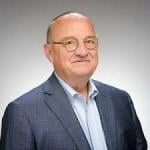It would be easy for me now to get all "preachy" with you and say something like, "when we are not doing what we are called to do, we open ourselves up to all manner of evil." Ergo: be about the work of God, and you will avoid the Davidic horror about to unfold. This will nicely remove the randomness of the deeds to follow, and we can once again settle into our comfortable pious bromides. I have heard a sermon or two like that, have you? Somehow, it smacks of religious treacle! Yes, David is not where he is supposed to be, and yes, his hands are idle, just ready for the devil's work, but I find something even more potentially dangerous and disturbing here.
Random deeds and random acts are always disturbing, are they not? "If I had left the house five minutes after I did, at the time I had originally planned to leave, I would not have encountered that truck in that intersection and would have been spared the pain of the accident." If I had decided to go to Harvard University, as I had planned to do for years, instead of choosing to go to Grinnell College, at the request of one of my High School English teachers, I would not have met my wife of now forty-six years, would certainly never have gone to any seminary, would never have taught at any seminary for thirty-three years, and would never have been writing such stuff as this for Patheos or any other website, just where would I be? (My life story!)
Our lives are chock full of randomness, thoughts, words, deeds, and no amount of planning, or control, or therapeutic interventions can remove it from each of our lives. Does that scare you, when you are lounging on your couch, eyeing the female next door, or sitting in your cubicle, gazing at the male at work, wondering what it would be like to act on what you happen to be feeling that moment? Can we live with the randomness of our lives? Perhaps the better question is: how exactly do we deal with that randomness? Instead of explaining it with trite phrases or tighter controls, perhaps we might best settle into it, and recognize its existence, and then live as well as we can with the God of justice and righteousness as our guide. This is not to say that we should shirk our responsibilities and head for the next couch of pleasure, but it is to say that much we experience simply happens. The issue is: how will we deal with it.





